- Home
- James Hankins
Shady Cross
Shady Cross Read online
ALSO BY JAMES HANKINS
Brothers and Bones
Jack of Spades
Drawn
This is a work of fiction. Names, characters, organizations, places, events, and incidents are either products of the author’s imagination or are used fictitiously.
Text copyright © 2015 James Hankins
All rights reserved.
No part of this book may be reproduced, or stored in a retrieval system, or transmitted in any form or by any means, electronic, mechanical, photocopying, recording, or otherwise, without express written permission of the publisher.
Published by Thomas & Mercer, Seattle
www.apub.com
Amazon, the Amazon logo, and Thomas & Mercer are trademarks of Amazon.com, Inc., or its affiliates.
ISBN-13: 9781477820988
ISBN-10: 1477820981
Cover design by David Drummond
Library of Congress Control Number: 2014946860
For Colleen.
CONTENTS
ONE
TWO
THREE
FOUR
FIVE
SIX
SEVEN
EIGHT
NINE
TEN
ELEVEN
TWELVE
THIRTEEN
FOURTEEN
FIFTEEN
SIXTEEN
SEVENTEEN
EIGHTEEN
NINETEEN
TWENTY
TWENTY-ONE
TWENTY-TWO
TWENTY-THREE
TWENTY-FOUR
TWENTY-FIVE
TWENTY-SIX
TWENTY-SEVEN
TWENTY-EIGHT
TWENTY-NINE
THIRTY
THIRTY-ONE
ACKNOWLEDGMENTS
ABOUT THE AUTHOR
ONE
1:40 P.M.
“YOU JUST GOT OUT OF jail? Seriously?”
Stokes heard nothing but curiosity in the guy’s voice. No judgment, no fear, just curiosity and maybe a little slur from the alcohol.
“Didn’t say I was in jail,” Stokes said. He took a sip of Budweiser and wiped his mouth with the back of his hand, the one that held the bottle. “Said I was at the jail. They had me in for questioning. No big deal.”
The guy looked at him in drunk-eyed wonder, like he was a rare species of lizard. “Wow. In jail.” He took a sip of his manhattan. “I guess you must not have done whatever they thought you did, though, or they wouldn’t have let you go.”
Stokes knew it didn’t always work like that, but why get into it?
“Like I said, no big deal.” He looked at the guy’s tailored suit again, the suit that had led Stokes to the bar stool next to him in the first place. “So what’s your deal?”
“Tom.”
“What?”
“My name’s Tom,” the guy said.
Stokes nodded, waited for an answer to his question, didn’t get it, so he asked again, “So what’s your deal, Tom? You from Shady Cross?”
“What’s Shady Cross?”
Stokes smiled amiably. “This little city you’re in.”
“Shady Cross?” the guy repeated as if he’d never heard of the place, like a few drinks had erased the name from his mind.
“They say it was built up a long time ago around the crossroads at the center of town,” Stokes said. “Used to be shady, I guess. So anyway, what’s your deal?”
“My deal? What do you mean?”
Stokes indicated the rest of the bar with a tilt of his head. It was on the seedy side, the kind of place people went to drink hard, to shoot pool, to swap bullshit stories about sexual conquests, to bitch about their blue-collar jobs or their bosses or their wives. Sometimes they went looking for a fight. Sometimes they went just to be left alone. And more often than not, whatever reason they were there, they also went wondering whether they might meet someone drunk enough, lonely enough, and tolerably attractive enough to spend a little time with after last call.
“You sort of stick out around here, Tom,” Stokes said. “Nice suit, polished shoes. Your hair’s all combed. So what’s your deal? I told you about jail, you can tell me your story.”
Tom turned his head to face Stokes. His glassy eyes caught up a fraction of a second later.
“Not much of a story. In town on business. Staying at a motel just down the road.”
“The Rest Stop?”
“Yeah, that might be what it’s called. You know it?”
Stokes did. He’d spent a few hours there two Saturdays ago with the waitress across the room. He nodded.
“Finished my business here this morning,” the guy said, “but can’t get a flight back to Pittsburgh till tomorrow. Just killing time now. Stopped in here for an early lunch, but, well, I met you instead and my lunch, uh . . .”
“Turned liquid?”
Tom looked at Stokes for a long moment, then laughed loosely. Stokes could have asked what business the guy was in. It was probably expected of him. But he didn’t think Tom was tracking the conversation very closely any longer. He was tottering on his stool now, his vacant eyes staring sightlessly at the mirror behind the bar. Stokes could have looked at that mirror, too, but he didn’t.
“You a cowboy?” Tom asked, chuckling like he’d made a joke.
“A what?”
“You’re wearing a cowboy shirt.”
Stokes looked down at his Western-style shirt, black with white stitching near the shoulders, which he wore over a black T-shirt.
“Nope,” he said. “Not a cowboy. Not even close. I don’t even like country music. It’s just a shirt I found in a thrift store. So what do you say, Tom? One more for the road?”
The guy said nothing for a moment, the words seeming to wander aimlessly through the fog in his mind for a while before finally finding their way. He looked at Stokes.
“Another? No way, man. Thanks, but I’ve prob’ly had enough. Thanks again, though, for buying all these drinks for me. Nice to find someone friendly in a strange place.”
Tom’s eyelids were sagging over tired, empty eyes.
“Yeah,” Stokes said, “you’ve had enough. You drive here this afternoon?”
“Drive? Yeah, I did. My rental.”
“Yeah, well, you’re not driving back to the motel. I’ll call you a cab, OK? You can come back for the car in the morning, on your way to the airport.”
“Cab?” He shook his head, looking like he was about to protest as he stood. Then his foot caught a leg of his stool and he just barely managed to grab the bar in time to save himself from a tumble onto the grimy, beer-stained cement floor. “Yeah, maybe a cab’s good idea.”
Stokes had called for a taxi ten minutes ago. He figured it would be pulling up outside just about now.
“I’ll help you,” he said, grabbing the guy by the arm, guiding him across the bar. Halfway to the door, he caught the eye of the waitress, Annie, the one he’d spent a few decent hours with a couple of Saturdays ago. She rolled her eyes at him before turning her attention back to her customers.
The taxi was idling in front of the bar. Stokes reached into the guy’s suit jacket, into the inner breast pocket, and removed a soft leather wallet. He opened the back door of the cab, helped Tom inside, and took out one of the guy’s twenties. He gave it to the cabbie and told him to take Tom back to the Rest Stop. Stokes counted the rest of the money, put forty bucks back into the wallet, and slipped $230 into his own pocket before leaning into the cab and returning the wallet to Tom’s jacket.
&
nbsp; “See you, Tom,” Stokes said as he closed the door.
The taxi pulled away and Stokes walked back inside, heading to the bar without looking Annie’s way.
“What was it?” Stokes asked the bartender, money in hand. “Four manhattans for my friend Tom and two Buds for me? What’s that come to?”
The bartender frowned, turned his back to Stokes, and punched a few buttons on the cash register. He turned around again. “It was three Buds. Forty-four bucks.”
Stokes peeled off two twenties and a ten and put the bills on the bar. “Keep it.”
“What a guy, Stokes,” the bartender said. “Hard to believe the cops could ever question the character of a saint like you.”
“Hey, feel free to give me that tip back, Chuck.”
The bartender put the money into the register, took out the change and stuck it into the tip jar beside the bottles of hard liquor.
Stokes smiled. “Maybe I’ll be in again later. We could shoot some stick, if it’s quiet. I could try to win that tip back, huh?”
The bartender shrugged. Stokes grabbed his leather jacket from his stool, nodded to Annie has he passed, and stepped out into the crisp fall day. In half a minute he was straddling his Yamaha SZR 660, helmet on and buckled, the motorcycle’s engine ready to roar. Five minutes later, he’d left behind the county highway, with its motels and diners and gas stations and seedy bars strewn along it like litter tossed from passing cars. He was flying along a wooded back road. The early-October leaves were nearing their fall peak, the last of the green having given way to fiery reds and glowing golds, but summer wasn’t so far behind that the leaves had started dropping in great number yet.
Stokes was feeling all right. His night in jail was behind him, and even though the sun wouldn’t set for hours yet, he was surrounded by trees full of sunset colors whipping by in a kaleidoscopic blur as he gunned his bike, sailing through the straightaways, leaning into lazy turns. He’d head back to his trailer, relax for a few hours, and maybe after dinner—
Leaning to his left, Stokes took the next curve way too tight, well over the centerline. He was halfway around the bend when a dark car appeared, was suddenly right on him, and there he was, leaning into the turn, leaning toward the car, speeding toward it, horribly exposed, nothing but soft flesh covering brittle bone, and he knew it was over, oh shit, it was over for him . . .
He was barely aware of the car lurching toward the far shoulder of the road as he jerked the handlebars of his motorcycle to the right, trying to wrestle the bike back into his own lane, away from the car. He watched the vehicle’s glittering headlight assembly sail toward his face, then zip just under his ear, his helmet nearly brushing the front quarter panel. He felt the huge metallic bulk of the car, throbbing with deadly power, blast past him, just inches away from him. And then, incredibly, he was beyond it, beyond the car, with nothing in front of him but road and trees, his bike cutting sharply across his lane, his front wheel turning now, seemingly on its own, beyond his power to control it, and in a deafening, bone-shaking, world-tilting moment, his bike slammed into a guardrail and he was flying, twisting, spinning through the air. Everything went unnaturally silent for the briefest of moments, and then he heard a violent, metallic crash from somewhere, just before he slammed to earth and his breath and consciousness exploded out of him.
The guy was dead. No doubt about it. Somehow Stokes wasn’t, but the driver of the car sure as hell was.
Stokes had come to rest near the bottom of a gentle incline sloping away from the road, on a thin blanket of dead leaves over a mattress of soft, moist ground. He’d lain for a moment, staring up at the trees all around him, at first wondering where he was and how he’d gotten there, but remembering soon enough, then wondering how the hell he’d flown fifteen feet into the woods and rolled down the hill without hitting a single tree. And, apparently, without breaking any bones.
He left his helmet by his mangled bike and climbed the little slope back up to the road. He stepped from the woods and looked for the car that had come so close to sending him elsewhere, either hell or purgatory or somewhere like that—certainly not heaven, if such a place existed. The car was nowhere in sight. For a moment Stokes thought it might have simply swerved around him and kept going wherever the hell it had been going when their paths had crossed . . . and then he saw them. Across the road, ten yards farther along, parallel grooves running through the gravel on the side of the road, grooves leading off the shoulder and down the hill on the other side, into the trees.
Stokes looked in both directions. Not a car in sight. He walked over to the tracks in the gravel. No skid marks on the road that he could see. The driver hadn’t even had time to hit his brakes, at least not before he hit the gravel on the shoulder. Stokes squinted into the woods, where the still-thick canopy of leaves dropped dense shadows to the forest floor. He looked down at the tire tracks in the gravel, where they led onto the soft earth by the road. He followed them with his eyes, down the gentle slope, through the first trees. And there it was. Maybe thirty feet in. A black car accordioned against a thick tree. Stokes looked down again at the tire marks in the gravel, then slid the sole of his boot over the marks, obliterating them. After one more look for cars on the road, he stepped into the woods.
And now there he was, staring into the car, staring through a spiderwebbed window at the bloody face of a body slumped over the steering wheel. Either this car didn’t have an air bag or it had been defective and hadn’t deployed. Or maybe the dead guy had unwisely deactivated it. The poor bastard’s eyes were open. Open and staring and totally lifeless.
Stokes took a step back. The woods were silent but for the ticking of the cooling engine. Most people would have called 911 by then, he knew. Then again, most people wouldn’t have spent the last night being interrogated by the cops about a burglary. Nor would they have been arguably at fault for this accident—and therefore this man’s death. And the fact that Stokes had recently had a couple of beers would surely complicate matters. No, Stokes wasn’t going to be calling the cops. Instead, he decided to hide his twisted wreck of a motorcycle as best he could, then leave as fast as possible. Maybe he’d come back after things died down around here and dispose of the bike properly, if no one had found it by then. Or maybe he wouldn’t—fortunately, it wasn’t registered in his name.
He was just about to implement his plan, such as it was, when something caught his eye through the window of the rear door. He leaned closer to the glass, careful not to touch the car, and peered inside. He blinked. He blinked again. He reached up under his shirt, gripped the door handle through the fabric, and tried the door. It swung open.
On the floor of the car, behind the passenger’s seat, was a backpack. But that wasn’t really what had snagged his attention. Rather, it was the bundles of money spilling out of the bag that had caught his notice.
Thousands of dollars.
Stokes swiped a hand across his forehead. It came away wet with sweat despite the cool autumn air in the shadowy woods.
That was a hell of a lot of money lying there. And that was merely what had spilled from the bag. If there was more inside, which there looked to be, it would be more than Stokes had made in years, maybe a decade—certainly far more than he had made honestly. And it was just lying there.
He saw two options: leave the money, knowing it would probably wind up under somebody else’s mattress—maybe whoever found the car, maybe the first cop on the scene—or take the money. The dead guy sure didn’t need it. Stokes sure did. The decision wasn’t a tough one for him.
TWO
2:42 P.M.
IT TOOK STOKES LESS THAN a half hour to walk back to the two-lane county road on the edge of town, backpack slung over one shoulder, its flap fastened securely. He’d rather have ridden his bike, but the motorcycle hadn’t fared nearly as well as he had in the accident. After leaving the car in the woods, Stokes had half pushed
, half dragged his Yamaha as far into the trees on the other side of the road from the wrecked car as he could. He left it in a deep depression, along with his helmet, covered them both with leaves and fallen branches, and scuffed away the drag marks as best he could. Shame about the bike. It had been with him eight years. But he could buy himself a hell of a new one now.
He crossed the road and headed into Tootie’s Diner. Even though Tootie’s was just a short walk from Chuck’s bar, where he’d wasted countless nights and a lot of money—some of it even his own—he’d never been inside the diner. When he came here to the outskirts of Shady Cross it was to drink, not eat.
A bell jingled softly as the door knocked it swinging. Stokes kept his head down and moved toward a booth in the back. As he passed through the joint, he heard conversation and clinking silverware and smelled coffee and apple pie and, most of all, meat loaf, which must have been Tootie’s special of the day. He squeezed into a booth in the rear of the place, head still down, his back to the room. A moment later, a fat-ankled waitress slid a menu under his nose while he examined the gray Formica tabletop. She might have been Tootie herself for all Stokes knew, if Tootie was still alive, or ever existed, and was even a woman and not a man, and still worked here, assuming she ever did. When the waitress was gone, Stokes took the backpack from his shoulder and placed it beside him on the cracked red vinyl seat of the booth. He turned his head casually. An elderly couple sat at one of the tables—looked like the meat loaf for both of them. A mother and father and small boy ate at a booth near the door. A heavyset woman in a faded denim jacket, her hair gathered into a loose bun on top of her head, sat two booths away with her back to Stokes. Trucker, Stokes figured, remembering the rig he’d seen on the shoulder of the road out front. The only other patrons were two old men sitting on stools at the counter, arguing in their dusty, old-man voices about something Stokes couldn’t hear. Other than the patrons, Stokes saw his waitress, who was just as chunky above the ankles, another middle-aged waitress serving the men at the counter, and a thick-armed fry cook sweating over the grill. No one paid Stokes the slightest attention until his waitress noticed him looking her way and came over.

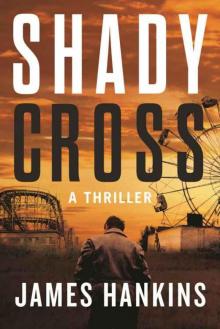 Shady Cross
Shady Cross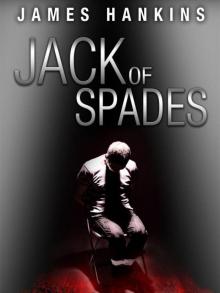 Jack of Spades
Jack of Spades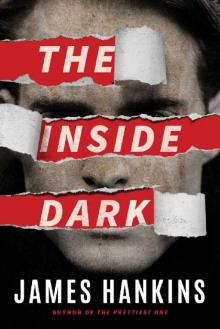 The Inside Dark
The Inside Dark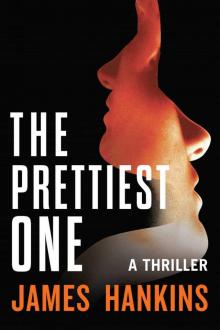 The Prettiest One: A Thriller
The Prettiest One: A Thriller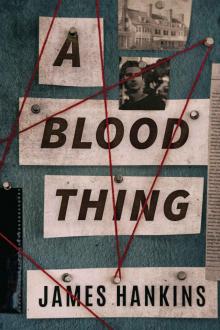 A Blood Thing
A Blood Thing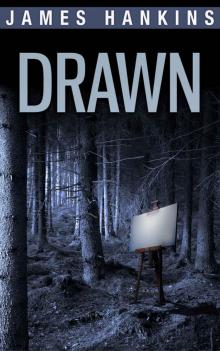 Drawn
Drawn